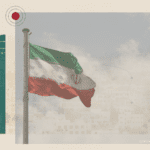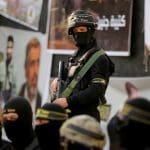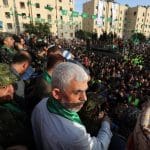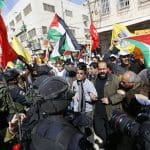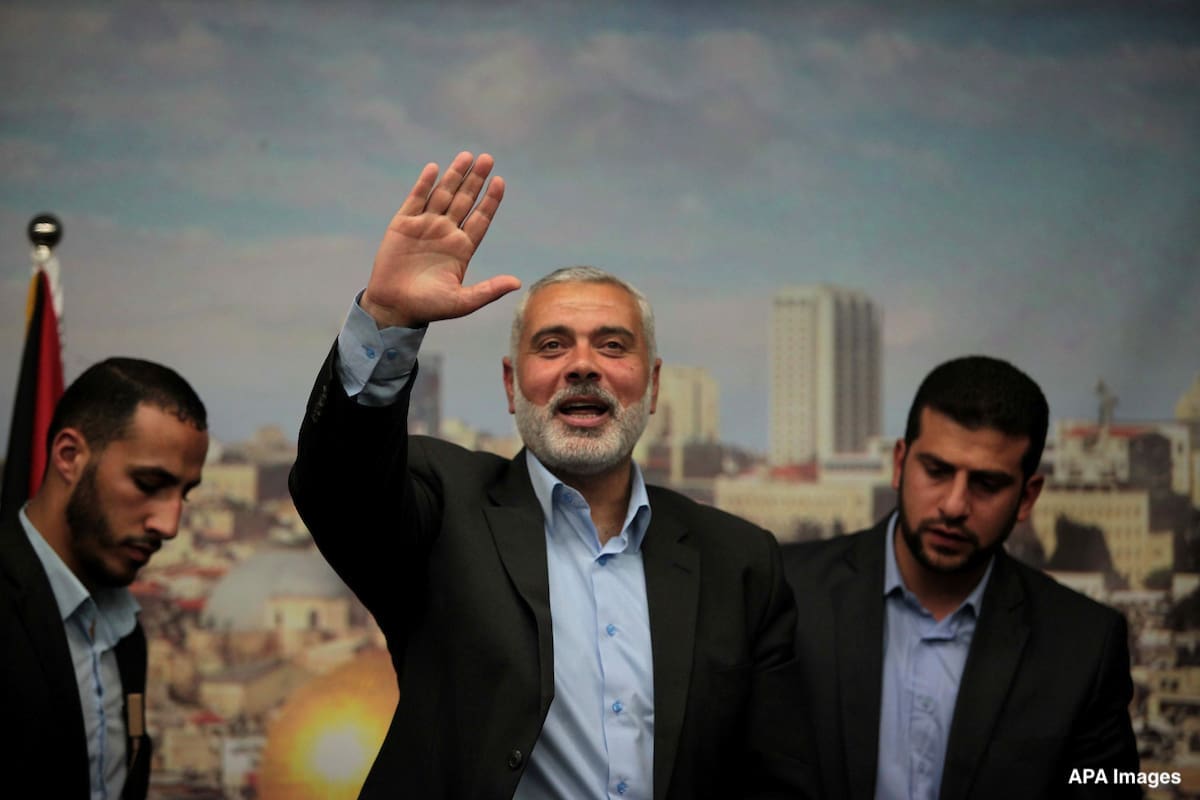
Ismail Haniyeh, chairman of Hamas’s Political Bureau, was assassinated on July 31, 2024, in the heart of Tehran while attending the inauguration of the new Iranian president. While the Israeli regime has yet to claim responsibility for the operation, the targeted killing follows a long history of assassinations of Palestinian political leaders by Israeli forces. As political chief, Haniyeh served as a key public figure for Hamas. Importantly, he also served as Hamas’s chief negotiator for current ceasefire talks amid Israel’s ongoing genocide in Gaza. Indeed, Haniyeh’s presence in Qatar enabled him to represent Palestinians at an international level. His assassination lays bare the reality that the Israeli regime is not interested in a ceasefire any time soon. It also raises questions surrounding the future of Hamas and its operational reality.1
In this roundtable, Al-Shabaka analysts Belal Shobaki, Tariq Kenney-Shawa, and Fathi Nimer offer their insights on the impact of Haniyeh’s assassination. They reflect on Hamas’s future, the impetus behind the operation, and its wider regional consequences, placing them within the historical context of so-called Israeli diplomacy.
Implications for Hamas: A Manageable Challenge
Belal Shobaki
Haniyeh’s assassination has raised many questions about the future of the Islamic movement and its impact on the wider region. This short analysis will address the impact of Haniyeh’s assassination on the organizational state of Hamas.
It is important to note that Israel has historically resorted to assassinating many Palestinian leaders, including those within Hamas. The pattern of killing or imprisoning Hamas leaders reached its peak during the Second Intifada, where the movement lost many established and experienced figures. Notably among those killed were Hamas co-founders Sheikh Ahmed Yassin and Dr. Abdel Aziz al-Rantisi in 2004. Others include senior leaders, such as Ismail Abu Shanab in 2003 and, later, Saeed Siam in 2009 as well as Saleh al-Arouri earlier this year. In addition to these extrajudicial killings, Israeli forces have imprisoned large numbers of leading political figures over the decades.
Importantly, while the movement inevitably felt the loss of these individuals, the impact that Israel sought to have on Hamas’s structure and organizational cohesion was limited. Indeed, Hamas emerged from the Second Intifada more popular and united than ever before. This progression was well reflected in the results of the 2006 legislative elections, where the movement won the majority of the council’s seats, as well as in its increasing military capabilities, reflected in many of the operations launched since 2006.
This cohesion and ability to pivot in times of adversity is largely due to Hamas’s decision-making structure, which operates on a decentralized basis. The head of the political bureau, for example, functions as a representative of the movement rather than as a sole decision maker, and decisions within the movement generally must pass through Hamas’s Shura Council structure. In this way, a leader’s sudden absence or incapacitation does not fundamentally affect the decision-making process. Furthermore, Hamas has demonstrated continued capacity to overcome any obstacles that may exist regarding communication between decision-making bodies located across the West Bank, Gaza, within Israeli prisons, and across the Diaspora.
Haniyeh's assassination is likely to increase the credibility of Hamas’s leadership among both its members and its broader following Share on X
Appointing a future head of Hamas’s political bureau through full implementation of the standard procedures would have likely been impossible in this moment—particularly with regard to the practicalities of holding elections amid the ongoing genocide in Gaza and the total crackdown on activities in the West Bank. Instead, Hamas has selected Yahya Sinwar, the movement’s head in Gaza, as Haniyeh’s successor for the time being. Sinwar’s appointment is likely to be accepted by the movement’s larger base, both as a result of increased general support as well as due to members’ political education, which stresses acceptance and loyalty to the party’s decisions. Indeed, Haniyeh’s assassination is likely to increase the credibility of Hamas’s leadership among both its members and its broader following. Many believe that his killing, as well as the recent killing of his family in Gaza by Israeli bombardments, reflect how the leadership remains deeply intertwined with the reality faced by Palestinians on the ground. This desire to anchor leadership within Gaza has been a central concern for Hamas for years, and played a crucial role in the selection of Sinwar as Head of Hamas in Gaza in 2017. Undoubtedly, it remains a key consideration as he succeeds Haniyeh today.
Overall, it is unlikely that there will be vast changes within Hamas following this latest assassination. The movement is governed primarily by a set of rules, principles, and foundations, and can thus pivot quickly in crisis situations. The changes that we have seen previously have often been gradual with preparatory steps, such as participating in the 2006 elections and announcing the new political charter in 2017. Therefore, any potential changes in the movement’s orientations will not stem from the assassination of Haniyeh or other leaders, but rather from new political experiences, the accumulation of expertise, and ongoing processes of study and consultation.
Israel’s True Objectives: Regional War and Gaza’s Subjugation
Tariq Kenney-Shawa
For decades, Israel’s intelligence services have cultivated a reputation for their ability to assassinate Palestinian leaders in covert operations hundreds of miles away, from Tunisia to Iran. This reputation is made possible by the massive power asymmetry afforded to them by the unconditional backing of the most powerful country in the world. Thus, while the brazenness of Israel’s most recent assassination spree is shocking, it should not come as a surprise. Israeli leaders have made no secret of their intention to kill anyone even remotely affiliated with Hamas, be they in Gaza or abroad, and Ismail Haniyeh was at the top of their list.
Some analysts have suggested Israel’s assassination of Haniyeh, Hezbollah commander Fuad Shukr, and, allegedly, Mohammed Deif could provide Netanyahu and his far-right coalition an “off-ramp” from which to end the war on their terms. However, this conclusion stems from a misreading of Israel’s true objectives. Israel’s blatant violation of Iranian sovereignty—a humiliation to Iran’s intelligence services as well as its new president—confirmed what Palestinians have long warned: that Israel has no interest in a ceasefire in Gaza. While Israel presents its goals as the “total destruction” of Hamas and the release of the hostages, its true aim is regional mobilization against Iran and the complete subjugation of Palestinians in Gaza.
If there was any impression that Israel was interested in securing a ceasefire, the decision to kill the man it was negotiating with should put that theory to rest. By killing Haniyeh in Iran’s capital, Israel knew that the Iranian regime would have to respond. Israel also acted with the unconditional and apparently limitless support of the Biden administration, which has repeatedly proven its eagerness to not only provide Israel with an endless flow of weapons and unyielding diplomatic support, but actively mobilize US personnel, assets, and regional vassal states to shoulder the burden of Israel’s defense. In other words, when Iran and Hezbollah do strike back, and if conditions escalate further into a wider regional conflagration, Israel can proceed with confidence, knowing the US will stand alongside it. As a result, Israel will benefit from a retrenchment of neighboring Arab states against Iran and an opportunity to strike a painful blow to Tehran’s defensive and offensive capabilities—all with Washington’s blessing.
If there was any impression that Israel was interested in securing a ceasefire, the decision to kill the man it was negotiating with should put that theory to rest Share on X
Perhaps most importantly, a regional war would give Israel cover to prolong the genocide in Gaza and take further steps toward its long-term goal of the total subjugation of Palestinians. Over the coming months, tens of thousands more Palestinians will die from starvation and disease in the face of continued Israeli restrictions on humanitarian aid into Gaza and the near-total destruction of health infrastructure. With each day that passes, Netanyahu succeeds in “thinning out” Gaza’s population. Meanwhile, Israel’s mass assassination campaign extends far beyond Hamas leaders: Israeli forces continue to massacre journalists, doctors, and municipal workers alike, ensuring that, along with the deliberate and systematic destruction of civilian infrastructure—ranging from water treatment plants to schools—there will be nothing left for Palestinians to return to. By further scuttling already dim hopes for a ceasefire, the slaughter in Gaza will continue unabated, and Israel will further its efforts to convert Gaza from the world’s largest open-air prison to a smattering of highly securitized and surveilled concentration camps.
The Charade of Israel’s Diplomatic Busywork
Fathi Nimer
Haniyeh’s assassination, along with that of senior Hezbollah military adviser Fuad Shukr, has reportedly left US officials “bewildered.” Indeed, global policymakers and analysts alike have asked how a ceasefire may be achieved when the Israeli regime continues its escalation of the genocide in Gaza and has now killed Hamas’s chief negotiator. While these reactions may seem logical, they are based on the erroneous assumption that Israel desires a negotiated ceasefire agreement with Hamas in the first place.
In reality, the charade of these latest negotiations follows a long legacy of diplomatic busywork used as cover for Israel’s predetermined plans. These efforts aim primarily to create the illusion of doing everything possible to arrive at a negotiated, diplomatic solution to any escalation. In doing so, prolonged negotiations provide Israel with both cover and the time necessary to carry out its actual planned approach on the ground. The Israeli regime has historically exploited such procedures to soften the blow to its image should it choose to discard diplomacy completely.
A prominent example of this was the US-sponsored de-escalation talks in 1967, where Egyptian President Gamal Abdel Nasser agreed to send his vice president to Washington to discuss easing tensions and re-opening the Straits of Tiran. Two days before the meeting was set to occur, the Israeli regime launched its surprise attack on Egypt, demolishing all hopes for a diplomatic solution. This move shocked even their American allies, whom Israeli Prime Minister Levi Eshkol had assured that Israel would let diplomacy take its course.
The charade of these latest negotiations follows a long legacy of diplomatic busywork used as cover for Israel's predetermined plans Share on X
A similar pattern emerged during the Oslo negotiations period: As the Israeli regime publicly negotiated with the Palestine Liberation Organization, it diligently worked in the background to increase the number of settlers in the West Bank and significantly expand their settlements. These efforts resulted in doubling the settler population in the West Bank. The pattern of heightened settlement expansion during peace negotiations, preceding and following Oslo, was such a routine occurrence that US Secretary of State James Baker complained about “being greeted by a new settlement” every time he arrived for peace talks.
As it stands, the diplomatic façade on display since October 7th follows this same logic and is simply another avenue for legitimizing military action. This fiction of serious diplomatic efforts is nurtured and broadcast by the US to provide cover for the Israeli regime’s actions, as well as to ease domestic tensions at home. The US has both the power and the leverage to pressure the Israeli regime into a ceasefire deal, but this is clearly not a priority for either nation.
- To read this piece in French, please click here. Al-Shabaka is grateful for the efforts by human rights advocates to translate its pieces, but is not responsible for any change in meaning.
Tariq Kenney-Shawa is Al-Shabaka’s US Policy Fellow and co-host of Al-Shabaka’s Policy Lab series. He holds a Masters degree in International Affairs from Columbia University. Tariq’s research and writing have covered a range of topics, from the role of open-source intelligence in exposing Israel’s war crimes to analysis of Palestinian liberation tactics. His writing has appeared in The Los Angeles Times, Foreign Policy, and The Nation, among others. Follow Tariq on Twitter @tksshawa and visit his website at https://www.tkshawa.com/ for more of his writing and photography.
Fathi Nimer is Al-Shabaka’s Palestine policy fellow. He previously worked as a research associate with the Arab World for Research and Development, a teaching fellow at Birzeit University, and a program officer with the Ramallah Center for Human Rights Studies. Fathi holds a master’s degree in political science from Heidelberg University and is the co-founder of DecolonizePalestine.com, a knowledge repository for the Palestinian question. Fathi’s research revolves around political economy and contentious politics. His current focus is on food sovereignty, agroecology, and the resistance economy in Palestine.
Belal Shobaki is the Head of the Department of Political Science at Hebron University, Palestine. He is a Policy Member at the Palestinian Policy Network. He is the founder and coordinator of the Double Master’s degree program in Public and cultural Diplomacy at Hebron University with University of Siena, Italy. He has published on Political Islam, identity, democratization and Palestinian issue. He is also leading Hebron University team of a 3 years project: Strengthening of National Research Capacity on Policy, Conflict Resolution, and Reconciliation, funded by the Erasmus+ program of the European Union. He has previously taught at An-Najah National University, Palestine and at IIUM, Malaysia.










